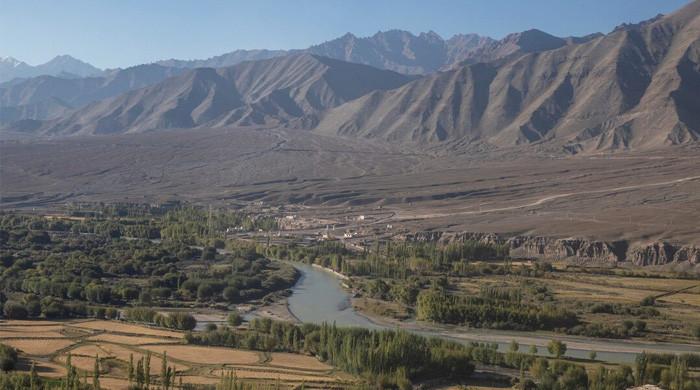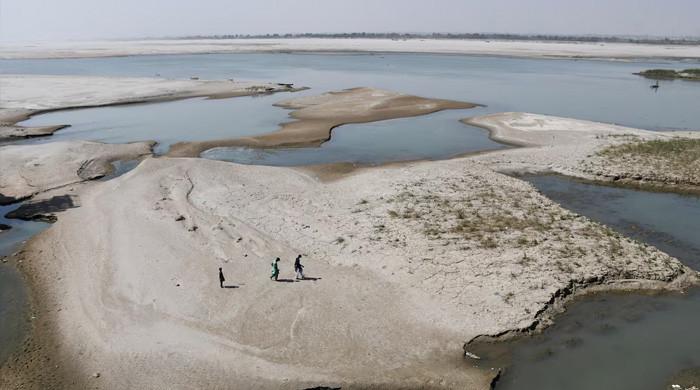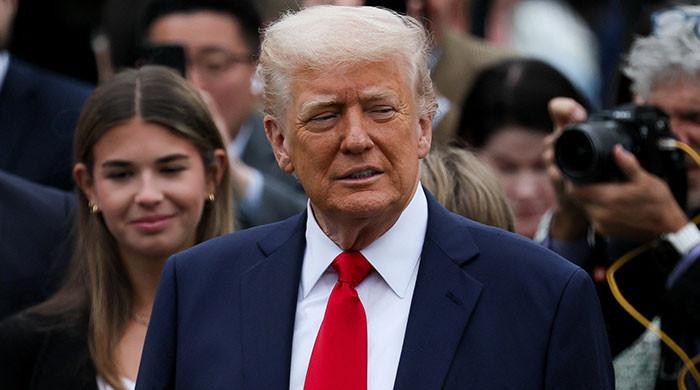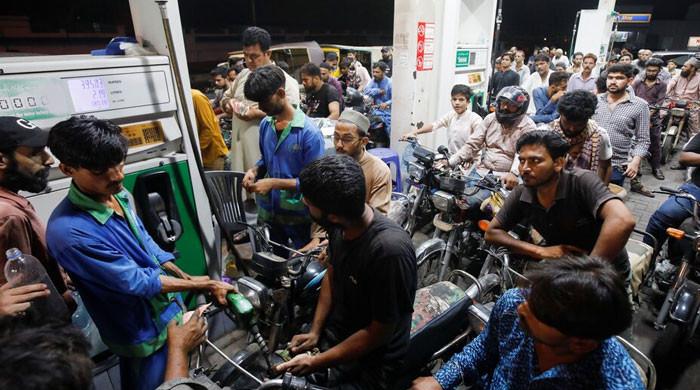SCO and Pakistan's national interests
Pakistani audiences need to understand range of stakes involved in continued high-level engagement with SCO
May 02, 2023
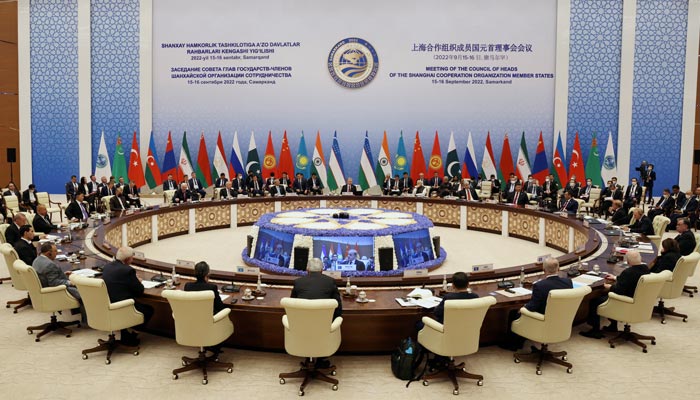
The government’s decision to accept the invitation to the SCO Foreign Ministers’ meeting in Goa this week reflects a maturity that has otherwise been missing from the military and political leadership in Pakistan in the last eighteen months.
Pakistan’s robust participation in the SCO is a vital element of the country’s important regional and global role and Pakistani audiences need to understand the range of stakes involved in continued high-level engagement with the SCO, including the heads of government meeting later this year that will also be hosted by India.
There are five key elements of the SCO that make it a critical forum for Pakistan; all of them require careful handling and deft management. Regardless of who is in power and what domestic troubles the country faces, engagement and visibility at the SCO is a vital Pakistani national interest.
First and foremost, the SCO is important because it is led by China and Russia. This makes it a uniquely non-Western multilateral forum — one of the few such organisations that has global heft and relevance. Pakistan has critical national interests in maintaining and sustaining its deep strategic partnership with China and ensuring that Russia remains the best version of itself that Pakistan can ever expect (an unantagonistically pro-India world power).
Reducing or ignoring the SCO and its importance would be a terrible waste of Pakistan’s hard-earned salience in Beijing and Moscow. Attending SCO meetings in India is a Pakistani concession to the SCO.
It is a symbol and signal of the importance that the Islamic Republic of Pakistan places on its relationship with China, and Russia. This is — front and centre — why a visit to India, as unappetising as it is for any Pakistani leader today, must be seen as an unavoidable part of a wider strategic engagement with non-Western powers.
Second, the SCO is a security-centric multilateral forum. Its primary goal is to ensure the strategic stability and safety of member countries. Perhaps no member country faces the security challenges that Pakistan faces today.
Engaging with the SCO is vital for Pakistani interests because SCO members need to be fully engaged with the security challenges Pakistan faces, especially given that the source of those challenges include one full SCO member (namely India) and two future SCO members (namely Afghanistan and Iran).
If the SCO is to live up to the grand vision and expectations that are associated with this body, full SCO member-states like Pakistan should not be facing existential security risks from other SCO members.
Pakistan’s presentation and engagement with the SCO should not ever become a forum for bilateral cribbing — but by the same token, the SCO’s core purpose of ensuring regional stability and security, and especially the SCO’s Regional Anti Terrorist Structure (RATS), cannot be fulfilled without Pakistani confidence in its regional partnerships.
Pakistan has been and will remain a net security provider for the region and the world and in the bargain it cannot be left to fend for itself when it comes to the threat of terrorism, extremism and separatism — all three of which are supposed to be countered by RATS.
In the immediate short-term, Pakistan’s engagement with SCO needs to be laser focused on RATS and the kinds of engagement that can help Pakistan tackle the current wave of terror, separatism and extremism that threatens stability in the country and beyond.
Third, the SCO’s founding members include Kazakhstan, the Kyrgyz Republic, Tajikistan, and Uzbekistan. These four countries (as well as Turkmenistan, Azerbaijan and Afghanistan) form the core of Central Asian countries that have spent three decades figuring out who and what they want to be.
The front of the pack among these countries are Kazakhstan and Uzbekistan, both combining to make up over eighty percent of Central Asia’s GDP. Their economic strength makes them important trade and investment partners.
Tajikistan’s importance to Pakistan is both economic (in terms of its centrality to trade routes) and strategic (given Dushanbe’s strong influence in Afghanistan, and its tilt toward Tehran). Kyrgyzstan may be among the few countries on the planet that shares the kind of strategic links with China that Pakistan has. Both Azerbaijan and Turkmenistan are key to Pakistan’s medium-term energy security.
Perhaps most importantly, peace and stability in Afghanistan will define the future of Pakistani stability and prosperity — as has been the case for over four decades. In the absence of a coherent and powerful forum for Pakistan’s vital role in Central Asia and its future, the SCO is the primary vehicle through which this influence and vitality can be explored.
In the longer term, a more clearly Pakistan-centric trade and security forum for Pakistan and the Central Asian states needs to emerge — independent of the influence of both Tehran and Ankara. But in the interim, Pakistani leaders need to invest time, effort and care during SCO fora to deepen Islamabad and Rawalpindi’s engagement with these Muslim majority countries that all require sea lanes to the Arabian Sea, and to the Indo Pacific region at large.
Fourth, of all the countries that are SCO members, none have the both-feet-in-both-camps past, present and future that Pakistan does. Despite the SCO being China and Russia led, the participation of India clearly indicates that joining the SCO is not equal to joining the Beijing ‘camp’.
But India is not a camp player anyway; it is too big to be asked to choose between different powers. Indian policymakers have spent nearly three decades transitioning from a regional power that can’t seem to get its way even on its borders, to a power that is now getting its way both ways — at a global scale.
Unlike India, Pakistan is stuck in ‘middle power quicksand’. It is big enough to garner the interest of both the West and the non-Western powers. But it is small enough that indecisiveness or mistakes with either camp will produce consequences of consequence.
This makes Pakistan’s engagement at the SCO an important marker for how Pakistan will not disengage from China and Russia to please the West — a marker that then needs to be balanced by markers in the other direction (and hence why eschewing participation in Joe Biden’s democracy variety show was the wrong call by Islamabad).
As a both-feet-in-both-camps power, Pakistan has an important role to play, not only for its own sake, but to establish a paradigm for how countries like Kazakhstan will manage the balance between their economic engagement with China, their security concerns with respect to Russia and their strategic interest in ramping up cooperation with Western powers.
No country is better placed to set the table on how closeness to both Beijing and Washington (and civility with Moscow) is both possible and desirable than Pakistan.
The SCO is the ideal setting for learning how to design this paradigm and how to sustain it for the next quarter century or more. The bonus here is that unlike many other countries, Western powers are likely to be most comfortable in engaging with Pakistan as their way of engaging with SCO at large — which makes Pakistan more important both at the SCO, as well as in Berlin, Brussels, Paris, London, Canberra, Tokyo and Washington DC.
Fifth, and finally, there is the SCO’s role in training and preparing Pakistan’s public discourse, the Pakistani civil service (especially the Foreign Office) and Pakistani politicians in how to engage with India. India’s rise as an economic power, and its arrival as a major strategic power at the global stage means that any notion of backtracking from August 5, 2019 or any notion of concession to Pakistan is a non-starter.
To boot, India’s media and leaders have cultivated the normalization of right-wing extremism that will make the oppression of India’s minorities harsher, more explicit and worse than ever before.
Given these factors, Pakistan will not (and should not) consider any concessions to India. The only way the two countries are likely to sit at the same table is multilaterally. Here too, India has deliberately and purposefully shut down the Saarc forum — largely to indicate its power over the region to exclude Pakistan.
India’s deployment of lawfare to weaponize UNSC 1267 against Pakistan has been masterful — both through instruments like FATF and India's more subtle multipronged engagement of powers like France, Australia and Japan.
The only meaningful channel where India will continue to have to play ball is the SCO. Pakistan will need to learn how to avoid bilateralizing the SCO, how to avoid the Indian media’s onslaught of disinformation and misinformation to distract SCO countries from the actual SCO and RATS agenda, and how to eschew engaging in debates that distract Pakistan from its immediate, near-term interests.
Pakistanis should pray for Foreign Minister Bilawal Bhutto-Zardari to have a successful (and uneventful) visit to Goa.
The writer is an analyst and commentator.
Originally published in The News





